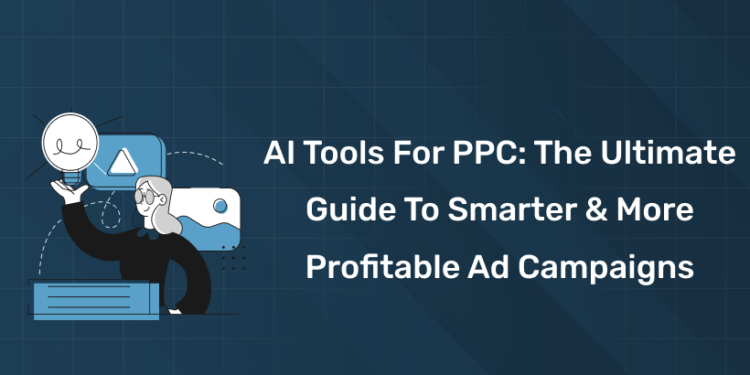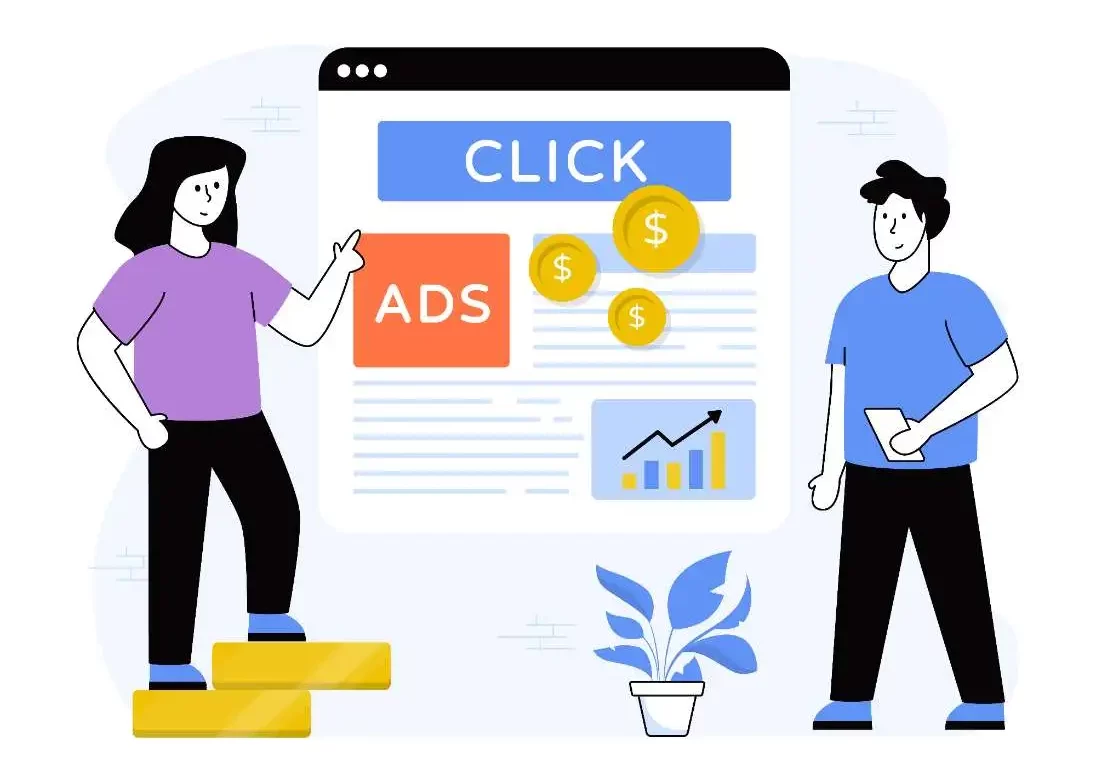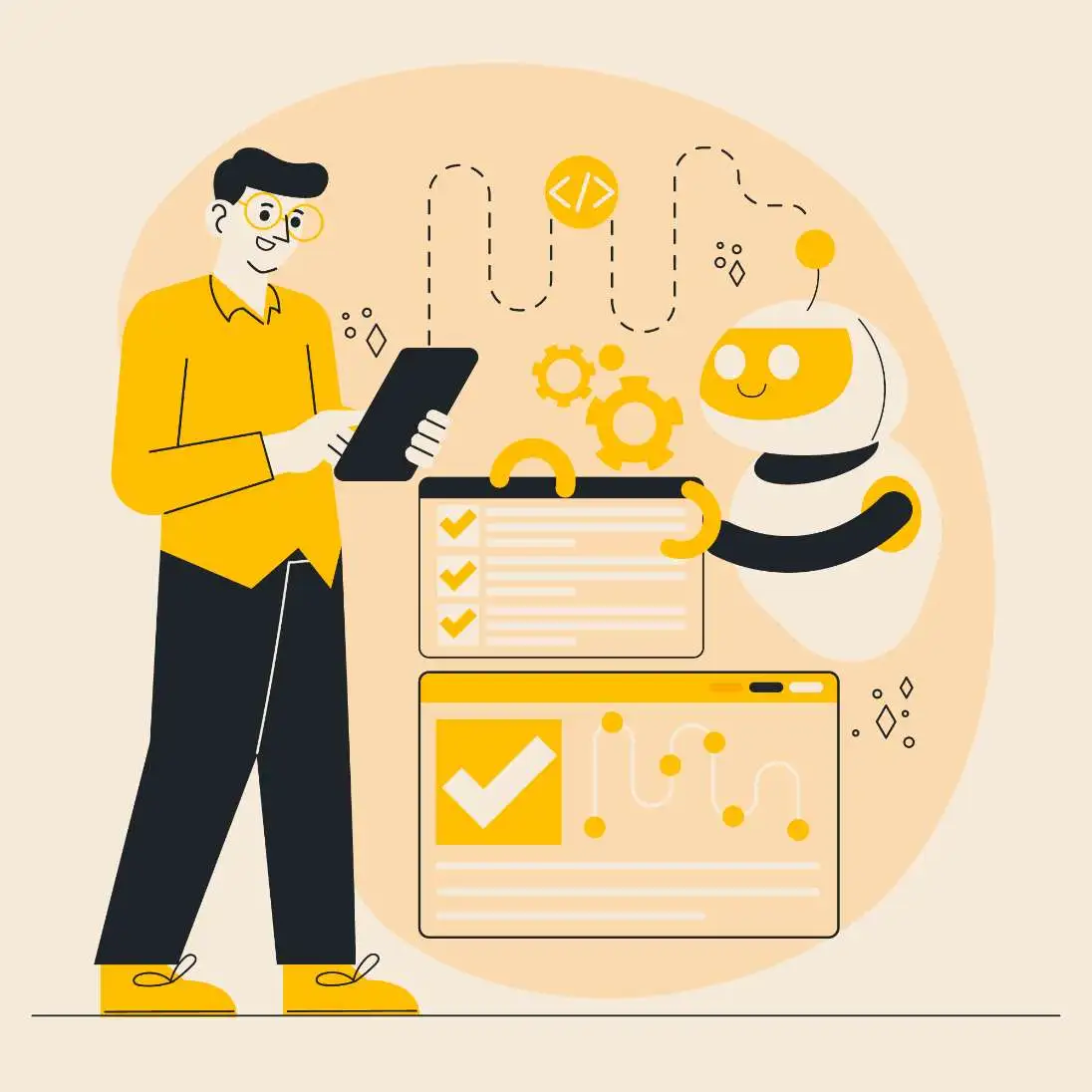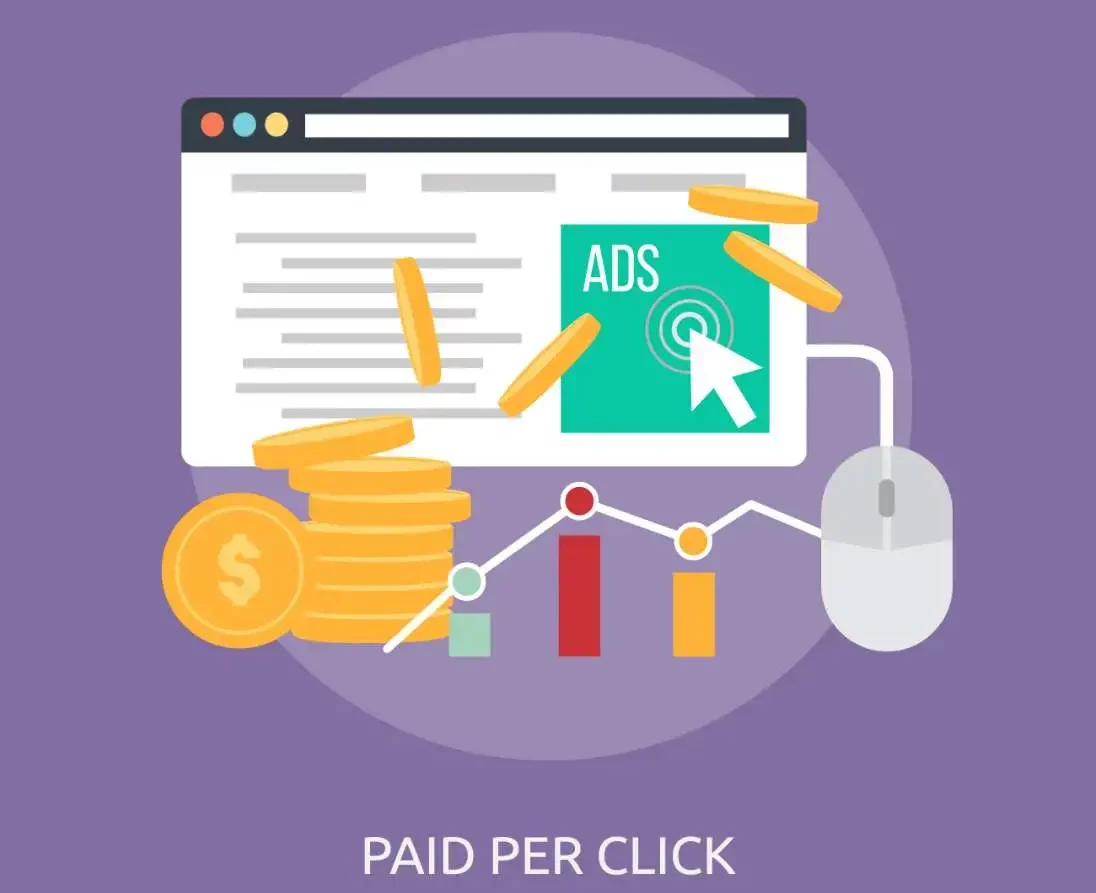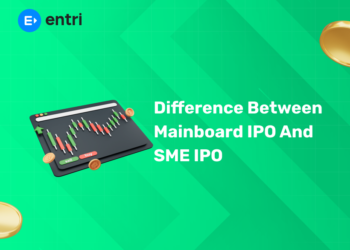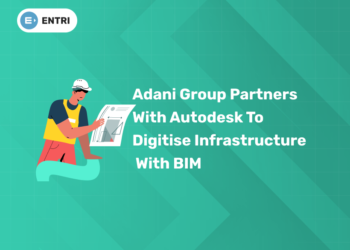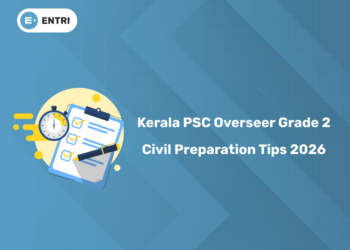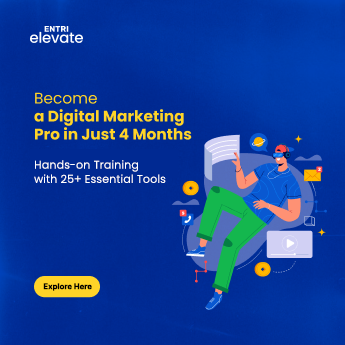Table of Contents
If you’ve read the main article “AI Tools for Marketers” on Entri’s blog, this is your deep dive into one of the most critical areas:
AI tools for PPC – Google Ads, Meta Ads, and other paid platforms.
Whether you’re boosting one small local business or managing lakhs of rupees in monthly ad spend, AI is now built into almost every part of performance marketing:
- Bids and budgets
- Targeting and placements
- Creatives and ad copy
- Reporting, alerts, and optimisation suggestions
This child page will walk you through:
- How AI is changing PPC in 2026
- The main categories of AI PPC tools (+ real examples)
- A simple, India-friendly workflow you can actually follow
- Common mistakes to avoid
- How Entri’s AI-Powered Digital Marketing Course helps you really learn this, not just read about it
Why AI Matters So Much in PPC Right Now
PPC used to be all about:
- Manual keyword bids
- Manual split-testing of ads
- Manual account checks every day
Now, platforms themselves are AI-first.
1. Google Ads is already an AI engine
Google’s Smart Bidding uses machine learning to optimise bids for conversions or conversion value in every single auction (auction-time bidding). Strategies like Target CPA, Target ROAS, Maximise Conversions, and Maximise Conversion Value are all Smart Bidding strategies.
On top of that, Performance Max (PMAX) campaigns use AI to:
- Decide where to show your ads (Search, YouTube, Discover, Gmail, Maps, etc.)
- Mix and match creatives
- Optimise towards your conversion goals
Google keeps expanding automation around PMAX and Smart Bidding (for example, the newer Smart Bidding Exploration features to loosen ROAS limits and hunt extra conversions).
In short: If you run Google Ads, you’re already using AI – whether you notice it or not.
2. Third-party AI tools are exploding
On top of native automation, there’s now a full ecosystem of AI PPC tools:
- Optmyzr – advanced PPC automation and optimisation for Google, Microsoft, Amazon, Meta, LinkedIn, and more.
- Adzooma – AI-driven audits, performance reports, and optimisation suggestions for Google, Microsoft, and Facebook Ads.
- Revealbot / Birch – automation rules and creative insights across Meta, Google, TikTok, Snapchat, etc., used to scale campaigns with less manual work.
- AdCreative.ai – generates conversion-focused ad creatives, texts, and even product images and videos using proprietary AI models.
These tools sit “around” the ad platforms and help with strategy, automation, and creatives.
For Indian advertisers under constant pressure on CPL, ROAS, and lead quality, knowing how to use these tools is quickly becoming a core skill.
Where AI Fits in the PPC Workflow
1: What is the primary goal of SEO (Search Engine Optimization)?
Instead of thinking “Which AI tool should I buy?”, think “Which part of my PPC workflow can AI improve?”
A typical PPC workflow:
- Planning & research
- Creative & copy creation
- Campaign setup & structure
- Bidding, budgets & optimisation
- Reporting & scaling
AI tools are now embedded in almost every stage.
Become an AI-powered Digital Marketing Expert
Master AI-Driven Digital Marketing: Learn Core Skills and Tools to Lead the Industry!
Explore CourseAI Inside Google & Meta: What You Already Have
Before external tools, learn to squeeze the most from built-in AI.
1. Google Ads Smart Bidding & Automation
Smart Bidding uses Google’s AI to optimise bids based on signals like device, location, time, audience, and much more for each auction.
Key strategies:
- Target CPA – try to get as many conversions as possible at your target cost per acquisition
- Target ROAS – focus on revenue value vs cost
- Maximize Conversions / Conversion Value – spend budget to get the most volume/value
Benefits:
- Less manual bidding
- Better performance in auction types too complex for humans
- Especially powerful when you have solid conversion tracking in place
Frontline trends articles show how Smart Bidding and PMAX are central to modern PPC and are expected to keep evolving.
2. Performance Max (PMAX)
PMAX is Google’s AI-driven campaign type that:
- Takes your assets (headlines, descriptions, images, videos, feeds)
- Shows ads across Google inventory
- Optimises for your conversion or value goal
It’s incredibly powerful for scale, but you trade some control for automation – which is why many advanced advertisers now combine platform automation + external AI tools for visibility, audit and control.
3. Meta & other platforms
Meta Ads increasingly pushes:
- Advantage+ campaigns
- Automated placements
- AI-generated ad variations
Third-party AI tools like Revealbot layer advanced rule-based automation on top of these.
Join Our Online Digital Marketing Course & Learn the Fundamentals!
Categories of AI PPC Tools
Now ,let’s look at external AI tools you can add on top of Google/Meta.
1. Multi-platform optimisation & automation
These tools plug into your ad accounts and act like a brain + engine for your campaigns.
Optmyzr – “pro-level autopilot” for PPC
Optmyzr is a PPC management platform used by agencies and in-house teams worldwide. It supports Google Ads, Microsoft Ads, Amazon Ads, Meta, and LinkedIn.
What it does:
- Analyses account performance
- Suggests optimisation actions (keyword changes, budget shifts, bid adjustments)
- Let’s you build automation rules and scripts without needing to code
- Helps you run experiments and enforce best practices at scale
Recent reviews and tool roundups consistently list Optmyzr among the top AI tools for Google Ads automation.
Adzooma – smart audits & cross-platform management
Adzooma focuses on making PPC management easy for smaller teams and agencies:
- Integrates with Google, Microsoft and Facebook Ads
- Provides free PPC performance reports with account scores and improvement tips
- Uses AI to flag wasted spend and missed opportunities
Good for:
- Beginners who want a simple health check of their accounts
- Agencies managing many small accounts needing standardised audits
Revealbot / Birch – rule-based automation at scale
Revealbot (rebranded as Birch in some contexts) allows you to:
- Automate pausing/starting ads based on performance rules
- Auto-scale budgets when campaigns hit certain ROAS/CPL thresholds
- Manage Meta, Google, TikTok and Snapchat Ads in one automation layer
Great for:
- Performance marketers who want fine-grained control on top of platform AI
- Scaling high-volume campaigns without checking dashboards every hour
2. AI Creative & Ad Copy Tools
Performance doesn’t come only from bidding – creative quality is massive.
AdCreative.ai – conversion-focused creatives at scale
AdCreative.ai uses proprietary machine learning to generate ad creatives (images, banner layouts, short videos and ad texts) trained on performance data.
Features:
- Generate on-brand image and video ads from product images or simple inputs
- Create text variations using proven copywriting frameworks
- Creative scoring – it gives an AI score predicting how likely an ad creative is to perform well before you even launch it
Shopify and other sources list AdCreative.ai as a top AI creative tool for paid ads because it can save time and help improve CTR and conversion rates.
Other AI copy tools (like the general-purpose ones you may already know) can also be used to:
- Generate headline ideas under 30 characters
- Create description variations for A/B tests
- Rewrite poor-performing copy in different angles (emotional, rational, urgency-based, etc.)
3. AI for Reporting, Alerts & Audits
Beyond daily optimisation, AI PPC tools also help you see what’s happening without drowning in spreadsheets.
- Adzooma offers free performance reports and ongoing account health monitoring.
- Many PPC suites (Optmyzr, Quartile, etc.) combine machine learning with dashboards for wasted spend, search term insights, and shopping feed issues.
This is especially useful for:
- Busy business owners who don’t have time to do manual audits
- Agencies that need consistent reporting for multiple clients
A Practical AI-Driven PPC Workflow
Let’s say you’re running ads for a stock market course or online professional course in India – very similar to what Entri and many other edtech brands do.
Here’s how you might structure your PPC work with AI tools:
Step 1: Strategy & structure (human-led, AI-supported)
- Use an AI chatbot to brainstorm:
- Main campaign themes (brand awareness, webinar leads, course purchase)
- Keyword ideas and ad angles (job security, salary growth, flexible learning)
- Validate with Google’s Keyword Planner or your SEO tool, but keep this AI brainstorming to speed up planning.
Step 2: Creatives & copy (human + AI)
- Use AdCreative.ai to:
- Generate a batch of image creatives (multiple layouts for each course angle)
- Create short ad videos for YouTube/Meta from your logos, screenshots and short scripts
- Use a copy AI to:
- Draft 10–20 headline options keeping character limits in mind
- Draft long headlines, descriptions and multiple angles (fear of missing out, success stories, EMI-affordable learning, etc.)
Then you:
- Clean up language to match your brand tone (and regional language if needed)
- Add real benefits and numbers (e.g., “10,000+ learners”, “placement support”, “live classes”)
Step 3: Launch with platform AI
- In Google Ads:
- For Search, use Smart Bidding (Target CPA / Maximize Conversions) once you have basic data
- For scaling, test a Performance Max campaign using your best creatives and conversion tracking in place
- In Meta:
- Use Advantage campaign types with auto placements
- Feed multiple creative variations and let the system pick winners
Step 4: Optimisation with external AI tools
- Connect Google + Meta accounts to Optmyzr or Adzooma:
- Run a PPC performance report every week to spot:
- Search terms with bad CAC
- Ad groups with CTR problems
- Campaigns limited by budget or poor ROAS
- Run a PPC performance report every week to spot:
- Use Revealbot/Birch to:
- Create rules like “If ROAS > 3 for last 3 days, increase budget by 20%”
- Or “If CPL > ₹X for last 7 days, pause ad set and alert me”
This way, AI watches your accounts 24/7 – while you think about offers, funnels and landing pages.
Become an AI-powered Digital Marketing Expert
Master AI-Driven Digital Marketing: Learn Core Skills and Tools to Lead the Industry!
Explore CourseCommon Mistakes to Avoid with AI PPC Tools
AI is powerful, but it can also amplify mistakes.
Blindly trusting automation without good tracking
Smart Bidding and tools like Optmyzr are only as good as your conversion data.
If:
- You’re tracking low-quality leads as conversions
- You’ve set up duplicate or wrong events
- You have no clear success metric (CPL vs ROAS vs LTV)
Then AI will optimise for the wrong goals and waste money.
Over-relying on one “black box”
Performance Max and Advantage campaigns can be amazing – but if everything is in one campaign:
- You lose visibility on which queries or audiences actually work
- It becomes harder to debug performance drops
Better to combine:
- Automated campaigns (PMAX, Advantage+)
- With more controlled campaigns (manual Search/Standard Shopping, etc.)
- And external AI tools for visibility and testing
Using AI creatives with no human sense-check
AI creative tools can sometimes:
- Use inappropriate imagery
- Generate copy that violates ad policies or over-promises results
Always check your ads for:
- Policy compliance (especially for finance, health, education)
- Clarity and honest claims
- Local cultural tone (for Indian audiences)
Chasing too many tools instead of mastering a few
You don’t need 12 AI tools on day one.
A realistic starting stack:
- Platform AI (Smart Bidding + PMAX)
- One external optimiser (Optmyzr or Adzooma)
- One creative AI (AdCreative.ai or similar)
Master those → then explore advanced automation like Revealbot.
How Entri’s AI-Powered Digital Marketing Course Fits In
Knowing tool names isn’t enough. Employers want people who can:
- Set up tracking
- Choose the right bidding strategy
- Interpret AI suggestions
- Turn insights into lower CPL and higher ROAS
Entri’s AI Powered Online Digital Marketing Course is built exactly for this reality:
What you can expect:
- Job-focused, AI-aware curriculum
- SEO, SMM, PPC, analytics, and content – with AI integrated into each module, not added as a separate theory chapter
- Hands-on PPC practice
- Planning and running Google Ads & Meta Ads campaigns
- Using platforms’ own AI (Smart Bidding, PMAX)
- Learning how and when to bring in third-party optimisation and creative tools
- Real-world projects for Indian & Gulf markets
- Campaigns and budgets that match what local companies actually do
- Placement assistance & career support
- The programme is repeatedly recommended as a top option for learners who want practical skills + placements in digital marketing and performance roles.
So if you want to move from “boosting posts randomly” to professionally managing PPC with AI tools, a structured path like Entri’s course can make that journey much faster and safer.
Key Takeaways – AI Tools for PPC
- PPC is already AI-driven: Google’s Smart Bidding, Performance Max, and Meta’s automation handle bids, placements, and combinations for you.
- External AI PPC tools add extra power:
- Optmyzr, Adzooma, Revealbot/Birch for optimisation, cross-platform automation, and rule-based scaling.
- AdCreative.ai and similar tools for high-performing creatives, ad texts, and predictive creative scoring.
- The smartest workflow is platform AI + external AI + human strategy:
- Let AI handle bids, budgets, and pattern detection
- Use creative AI to test more variations
- Keep humans focused on offers, funnels, messaging, and compliance
- Avoid common traps:
- Poor conversion tracking
- Blind faith in black-box campaigns
- Generic AI creatives without checks
- Too many tools, not enough mastery
Also check out:
- Entri’s Resume Builder to craft industry-ready, ATS-optimised resumes tailored for digital marketing and AI-related roles.
- Prepare for interviews with Entri’s AI Interview Preparation App, which simulates real-world interview questions and gives instant, data-backed feedback to improve your confidence and communication skills.
Frequently Asked Questions
What are AI tools for PPC?
AI tools for PPC use machine learning to automate bidding, improve ad targeting, create ad copy, forecast results, and optimise campaign performance in real time.
Why should beginners use AI for PPC?
Beginners can avoid manual complexity; AI handles bidding, targeting, and performance monitoring, making PPC easier, faster, and more cost-effective for new marketers.
Which AI tools are best for PPC in 2026?
Popular options include Optmyzr, WASK, AdCreative.ai, Anyword, Acquisio, SEMrush, and Meta’s Advantage+ for automated campaign optimisation.
Can AI tools reduce the cost of PPC campaigns?
Yes. AI optimises bids, improves targeting accuracy, and eliminates wasteful spending, helping reduce CPC, CPA and improve ROAS.
Does AI help in writing PPC ad copy?
Tools like Jasper, Anyword, and ChatGPT generate high-performing ad copy variations, headlines, descriptions and even predict which version will convert best.
Are AI PPC tools safe to use?
Yes. Most tools comply with advertising policies and provide commercial-use assets. You still need to monitor campaigns to ensure accuracy and brand safety.
How does AI optimise PPC bids?
AI analyses performance signals like CTR, device type, time of day and audience behaviour to automatically adjust bids for maximum conversions at the lowest cost.
What metrics does AI help track in PPC?
AI tools track CPC, CTR, CPA, conversion rate, ROAS, impression share, budget pacing and offer machine-learning powered insights for improvement.
Where can I learn PPC and AI tools professionally?
Entri’s AI-powered Digital Marketing Course trains you in PPC strategy, Google Ads, Meta Ads, AI-assisted campaign management, real-time optimisation and hands-on projects.


